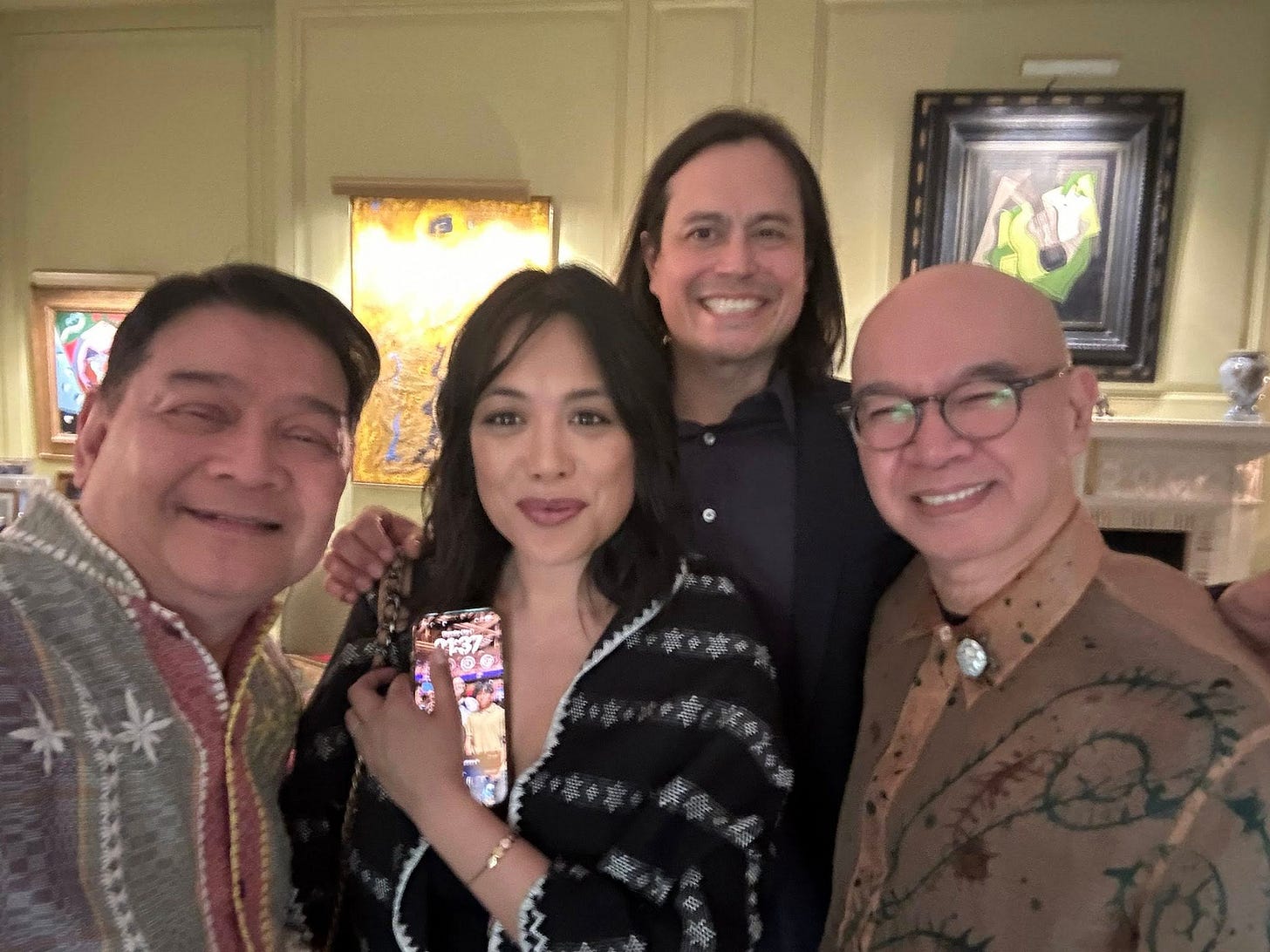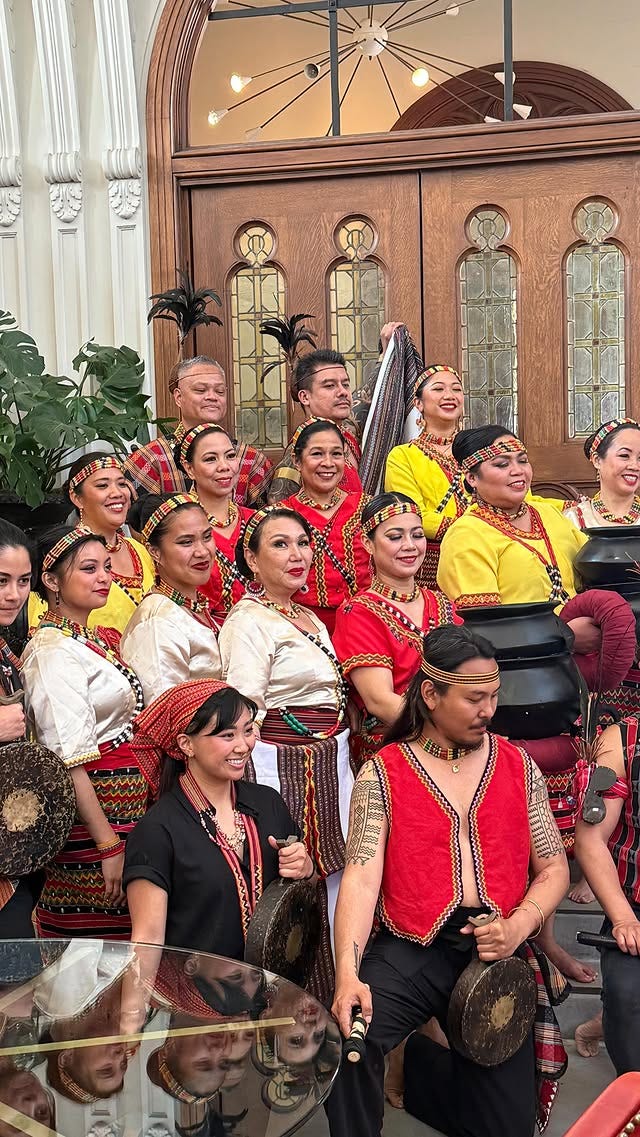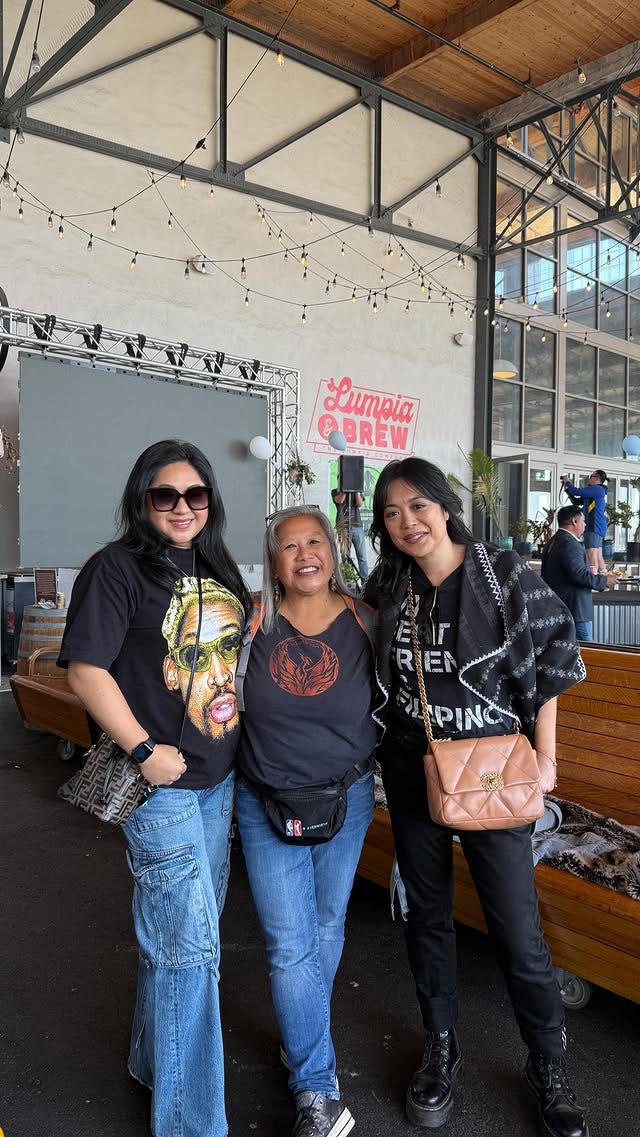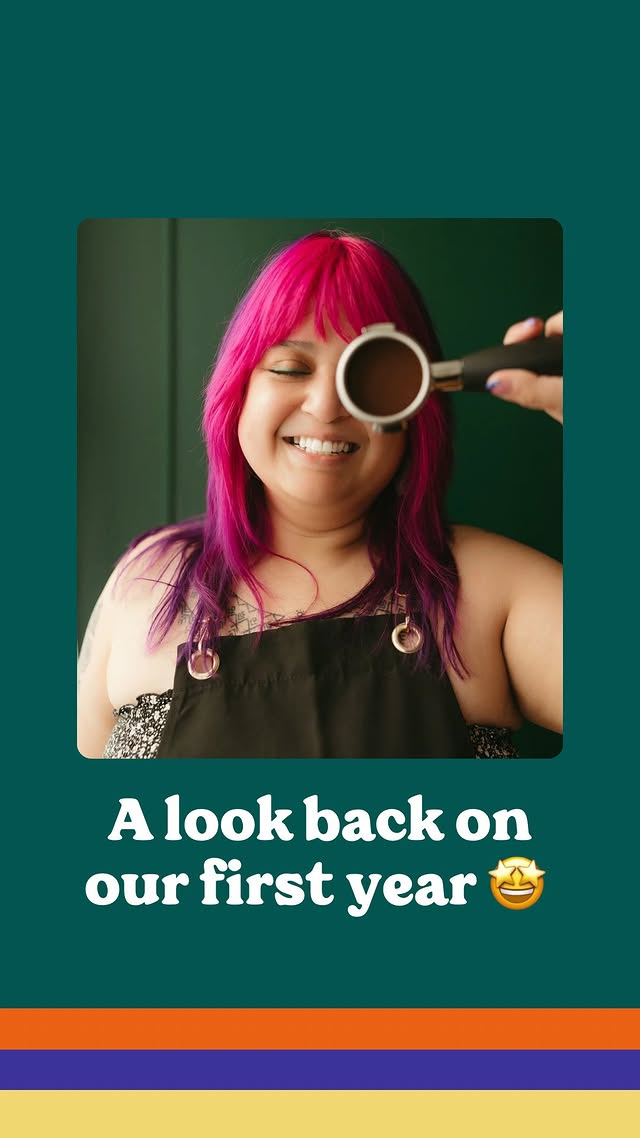At a time when diverse stories are being muted, rewritten, or erased altogether, showing up in joy is not a luxury.
It’s a form of resistance.
When curriculum bans threaten to flatten our histories, when representation is treated like a marketing trend, when people still ask where you’re really from, choosing to stand in joy, in pride, in culture, is a radical act.
This AAPI Heritage Month, it’s not about just showing up. It’s about showing up and celebrating. Loudly.
Joy isn’t frivolous. It’s how we survive. It’s how we remember, and it’s how we build the future our ancestors intended.
Preserving Culture Isn’t Passive
 We opened the month by joining the team launching Friends of the Philippines–USA Marketplace, a new cultural gathering happening this fall (Oct 31 to Nov 2). It’s not just a festival. It’s a movement to futureproof Filipino culture, with a focus on Indigenous traditions — music, weaving, language, script, and foodways.
We opened the month by joining the team launching Friends of the Philippines–USA Marketplace, a new cultural gathering happening this fall (Oct 31 to Nov 2). It’s not just a festival. It’s a movement to futureproof Filipino culture, with a focus on Indigenous traditions — music, weaving, language, script, and foodways.
Our garments, instruments, and crafts are not relics. Relics come from cultures that no longer exist. Kulintang and Kalinga weaving are living traditions that are still practiced. Our intent is not to put our Philippine indigenous culture behind glass — it’s about keeping it in motion.
Culture does not need protecting. It needs doing.
Dancing, Remembering, Reimagining
At Gongsters Paradise in San Francisco last weekend, I witnessed something I’m still trying to put words to. Traditional Filipino music collided with modern sounds. Kulintang rhythms woven through DJ sets, rap verses layered over gong beats, ancestral energy moving through strobes, sneakers, and subwoofers. It wasn’t just a vibe. It was a reclamation; a remix of memory and momentum.
Then came Sayawin in Oakland, a benefit for Sama Sama Summer Camp, a cooperative-run, Filipino-centered day camp in the East Bay that teaches kids ages 5–14 through language immersion, Indigenous music and dance, and ecological exploration. “Sama Sama” means “all together,” and that spirit ran through everything. It wasn’t just a party. It was a reminder that we pass down culture by doing, not just by saying.
In both spaces, we weren’t performing culture. We were living it. There were no panels, no Q&As. Just food, rhythm, spirit, and presence.
These moments reminded me that this is the work.
Joy is how we stay connected to ourselves.
Joy is how we resist the grind of invisibility.
Joy is how we heal and how we build what’s next.
Impossible to Miss
This month, I’m showing up at AAPI Heritage Month events at the Met Museum and the NYC Mayor’s Office. I’m there to represent what Filipinos are capable of: building, leading, creating, and taking up space in places that haven’t always made room for us.
When I walk into these rooms, I’m bringing our flavors, our stories, and our future with me. Dear Flor isn’t just a product. It’s a statement about who we are and what we deserve to see reflected in the world around us.
I’m also looking forward to moderating a CHIEF session on multiracial Asian identity. Too often, multiracial folks are asked to choose a side or their edited out of the conversation entirely. This session isn’t just about personal identity. It’s about representation, leadership, and building spaces that don’t require code-switching to belong.
I’m also hosting CHIEF’s first-ever AAPI Heritage Month karaoke night. Because sometimes representation looks like a mic, a crowd, and a power ballad sung with your whole chest.
Legacy in Motion
I recently signed on as a mentor through the FilExcellence Global Mentorship Program—the first of its kind designed specifically to connect Filipino professionals across generations and industries. It’s a platform built to bridge the gap between early-career talent and experienced leaders in our community—something many of us never had growing up.
I’m mentoring Kristal Brown from Barkada Coffee in Oregon, and I couldn’t be more proud. She’s building something that’s deeply rooted in culture and care. Mentorship like this isn’t just about advice—it’s about showing up for each other, building networks of visibility, and helping Filipino founders rise with confidence and support.
Meanwhile, 100 Ways to Filipino is buzzing with new stories in the works. Lyle del Mundo, NUMP, Monica Blanco (Panganay Co./Istorya), and Melissa Miranda (Musang) are all stepping up to the mic. I’ve also got a stack of powerful conversations in the queue with folks like Kristina Rodulfo (Pearl), Bettina Makalintal, Vanessa Manzano, founder of the Filipino School of New York and New Jersey, and Kristian Kabuay, a leading expert in Indigenous Filipino writing systems and a practicing batok artist.
Each conversation is a reminder that our culture isn’t static. It’s evolving, layered, defiant, and deliciously alive.
This Is the Work
AAPI Heritage Month isn’t a box to check. It’s a reminder that being Filipino, Asian, or mixed is worth celebrating. Especially now.
We fight back with joy.
We show up with joy.
Joy is how we keep going.





